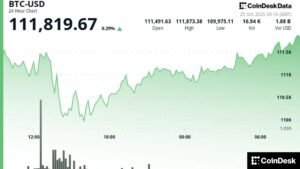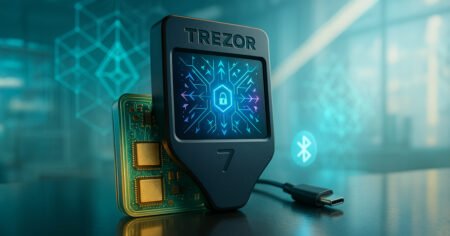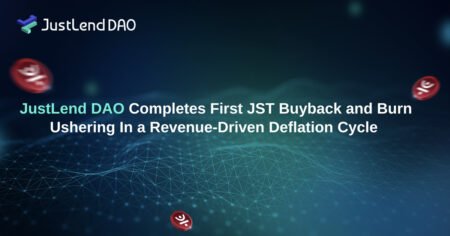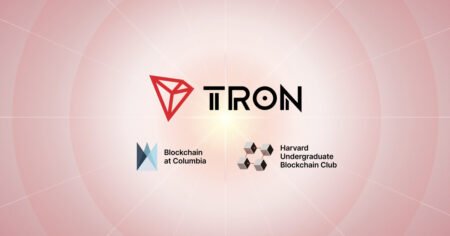Introduction to Gold Tokens vs. Bitcoin
The debate surrounding the viability of tokenized gold versus Bitcoin continues to gain traction, especially with recent statements from notable figures like Binance founder Changpeng Zhao. In response to Peter Schiff’s assertions that tokenized gold could outperform Bitcoin, Zhao highlighted a critical point: tokenized gold is fundamentally rooted in trust towards third-party issuers rather than real on-chain asset ownership. This article dives into the inherent differences between popular gold tokens and Bitcoin, particularly focusing on security, custody, and redemption processes.
Understanding the Core Technology: On-Chain vs. Off-Chain
One of the main differentiators between Bitcoin and tokenized gold is their underlying technology. Bitcoin operates on a decentralized ledger, providing users with true ownership through self-custody, meaning final settlement occurs directly on the Bitcoin blockchain. Conversely, tokenized gold, such as PAX Gold, Tether Gold, and Comtech Gold, relies on off-chain assets stored in vaults. Although these tokens are transacted on public chains, the actual gold associated with these tokens is held in private vaults and managed by issuers. Thus, tokenized gold can be seen as a "trust me bro" asset, where the promise of redeemable gold hinges on third-party reliability.
The Mechanics of Settlement and Redemption
The processes of settlement and redemption uncover further distinctions. Bitcoin allows users to withdraw their holdings without needing third-party intervention, merely requiring a network fee and transaction confirmations. With tokenized gold, however, the redemption process is far more complex. For example, PAX Gold generally requires a significant minimum withdrawal of approximately 430 ounces, while Tether Gold and Comtech Gold impose similar restrictions. This contrasts with Bitcoin’s permissionless nature and highlights a key vulnerability for tokenized gold; logistical challenges can result in bottlenecks during heightened market demand.
Risks Associated with Custodianship and Control
The custodianship and administrative control of tokenized gold raise concerns about security and reliability. Both PAX Gold and Tether Gold are issuer-administered, allowing them to freeze tokens under certain conditions, as seen with PAX Gold’s freeze of over 11,000 tokens associated with FTX in 2022. In stark contrast, Bitcoin’s self-custody model empowers users to maintain complete control over their assets without interference from issuers. The administrative exposure of these gold tokens often leads to additional layers of risk, creating potential complications when holders seek to redeem.
Evaluating Transparency and Proof Mechanisms
When it comes to transparency and proof of reserves, a further gap emerges between tokenized gold and Bitcoin. Bitcoin ETFs, such as those by Bitwise and ARK 21Shares, have adopted more frequent reserve transparency measures like daily third-party proofs of reserves. This has made it easier for participants to verify underlying assets. In contrast, tokenized gold relies more on periodic accountant attestations and documentation from custodians, which can lack the immediacy and reliability of cryptographic proofs intrinsic to blockchain technology.
Market Implications and Future Considerations
As macroeconomic conditions influence asset prices, the realities of tokenized gold may become even more pronounced. Record gold prices, driven by safe-haven flows, could exacerbate redemption pressures for tokenized assets that are constrained by logistical hurdles. With increasing institutional interest in Bitcoin, particularly through newly regulatory-approved ETFs, the direct link between Bitcoin holdings and their underlying assets becomes more robust, minimizing friction during market fluctuations. Ultimately, while tokenized gold presents intriguing features, those interested in direct asset ownership and minimal counterparty risk may find Bitcoin to be a more reliable option.
Conclusion: The Verdict on Tokenized Gold versus Bitcoin
In summary, tokenized gold lacks the foundational benefits that Bitcoin offers, including true on-chain ownership, permissionless transactions, and a robust proof of reserves framework. The reliance on third-party issuers, complex redemption processes, and administrative controls introduce vulnerabilities that Bitcoin simply does not have. As investors navigate these assets, understanding these fundamental differences will be critical in making informed choices in today’s evolving financial landscape.
![Humanity Protocol [H] Rises 138% Following Integration with Sui Ecosystem](https://cryptonewsinsiders.com/wp-content/uploads/2025/10/Gladys-45-1000x600.webp-300x180.webp)
















